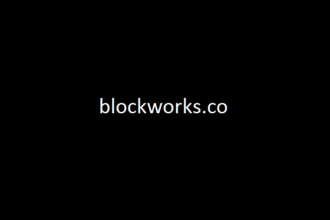This is a segment from the 0xResearch newsletter. To read full editions, subscribe.
Lido, which holds about 27% of staked ether, is out with its v3 plans today. At the heart of this upgrade is stVaults — modular smart contracts designed to provide greater flexibility, boost institutional adoption and engender deeper DeFi integration.
Konstantin Lomashuk, a founding contributor to the protocol, calls stVaults “a flexible foundation for the next phase of staking [that] upholds the security and decentralization the Lido protocol is known for.”
Modular staking and restaking
stVaults introduce a modular staking framework with components that operate alongside the Lido Core Protocol. This allows for customized validator setups, adjustable fee structures and optimized risk-reward profiles — including restaking.
V3 is anticipated to grow institutional interest in Ethereum staking, as stVaults should provide the customizable infrastructure needed to support regulated staking products and new financial instruments like staking-enabled ETFs. Beyond institutions, the structure enables participation from independent validators, asset managers and DeFi builders.
For institutional stakers, stVaults aim to allow staking setups that align with compliance requirements, such as validator customization, controlled deposit and withdrawal processes and optimized fee structures.
With BYOV (Bring Your Own Validator), node operators can presumably offer bespoke staking products, attracting high-volume stakers and diversifying revenue streams.
Curators and asset managers leveraging stETH as collateral will be able to implement advanced staking strategies that integrate with the broader DeFi ecosystem.
Among “advanced” strategies are those that involve restaking. Without explicitly mentioning EigenLayer or Symbiotic by name, Lido references “emerging restaking trends” and “shared security.” The key differentiator is that stVaults introduce an opt-in model for shared security strategies. This allows participants to engage with restaking protocols while mitigating exposure to restaking risks for the Lido Core Protocol.
A separate vault token can have its own liquidity and DeFi integrations, a Lido spokesperson told Blockworks. “Mellow has done something similar, but the key difference here is that this variant can be directly linked to a specific node operator, which wasn’t possible before.”
Institutional growth and decentralization
In parallel with Lido v3, the Lido Ecosystem BORG Foundation has been established following a proposal that passed overwhelmingly with broad support, including from Blockworks Research. The BORG Foundation enhances Lido’s ability to form institutional partnerships, ensure compliance and provide additional governance safeguards.
The foundation allows Lido DAO to directly appoint and remove directors, oversee multisig management and provide indemnification for contributors. By creating a structured legal entity, the BORG framework aligns with Lido v3’s focus on institutional grade staking infrastructure.
Lido maintains that stVaults will also contribute to Ethereum’s decentralization. Lido dominance has been a concern for the more strident decentralization advocates in the past. The Reserve Ratio (RR) mechanism ensures a portion of staked ETH remains bonded as collateral, enhancing security and preventing excessive rehypothecation. This model fosters a more decentralized validator network, ensuring Ethereum staking remains both robust and liquid, according to the proposal.
V3 maintains liquidity through stETH fungibility and in-protocol redemptions, making it easier for stakers to enter and exit positions without disrupting the broader market.
Rollout plan
Pending approval from the Lido DAO, the rollout of Lido v3 will proceed in three phases:
- Early adopter program: Select partners will build and test staking vaults, preparing for a smooth transition to full stVault functionality upon mainnet launch.
- Testnet: Rigorous testing and integrations with ecosystem partners will ensure security and stability.
- Mainnet: Activation of institutional staking setups, advanced staking strategies and opt-in shared security mechanisms.
With the combined advancements of Lido v3’s modular staking infrastructure and the Lido Ecosystem BORG Foundation, Lido is cementing its role as a foundational component of Ethereum staking.
Start your day with top crypto insights from David Canellis and Katherine Ross. Subscribe to the Empire newsletter.
Explore the growing intersection between crypto, macroeconomics, policy and finance with Ben Strack, Casey Wagner and Felix Jauvin. Subscribe to the Forward Guidance newsletter.
Get alpha directly in your inbox with the 0xResearch newsletter — market highlights, charts, degen trade ideas, governance updates, and more.
The Lightspeed newsletter is all things Solana, in your inbox, every day. Subscribe to daily Solana news from Jack Kubinec and Jeff Albus.
Blockworks: News and insights about digital assets. – Read More










